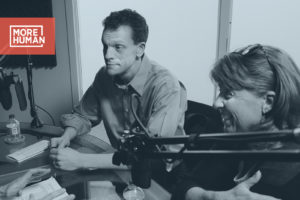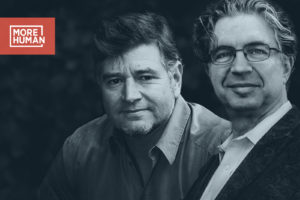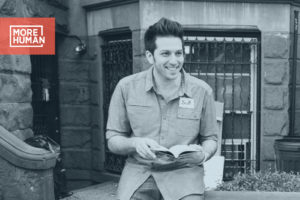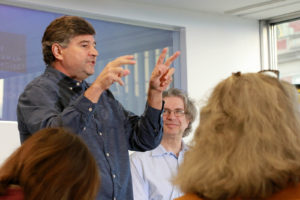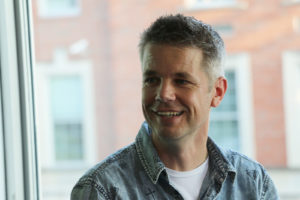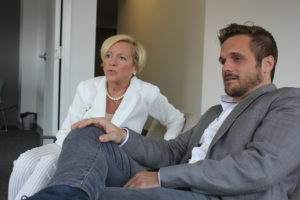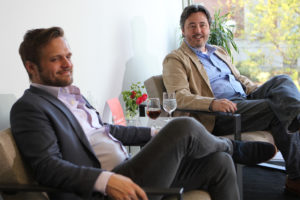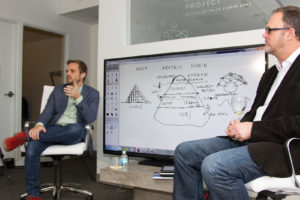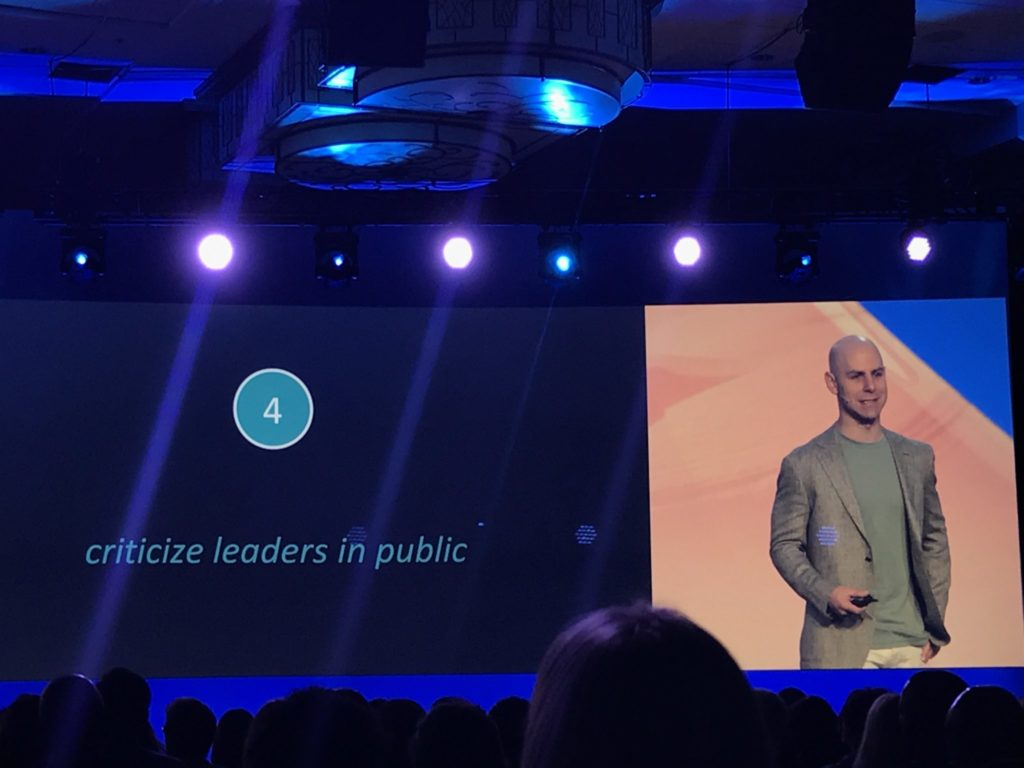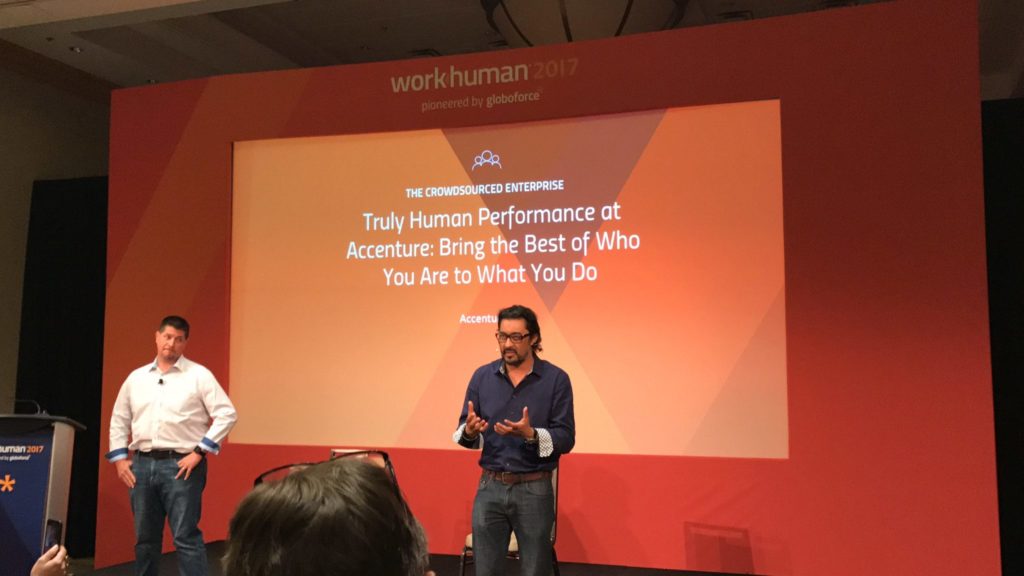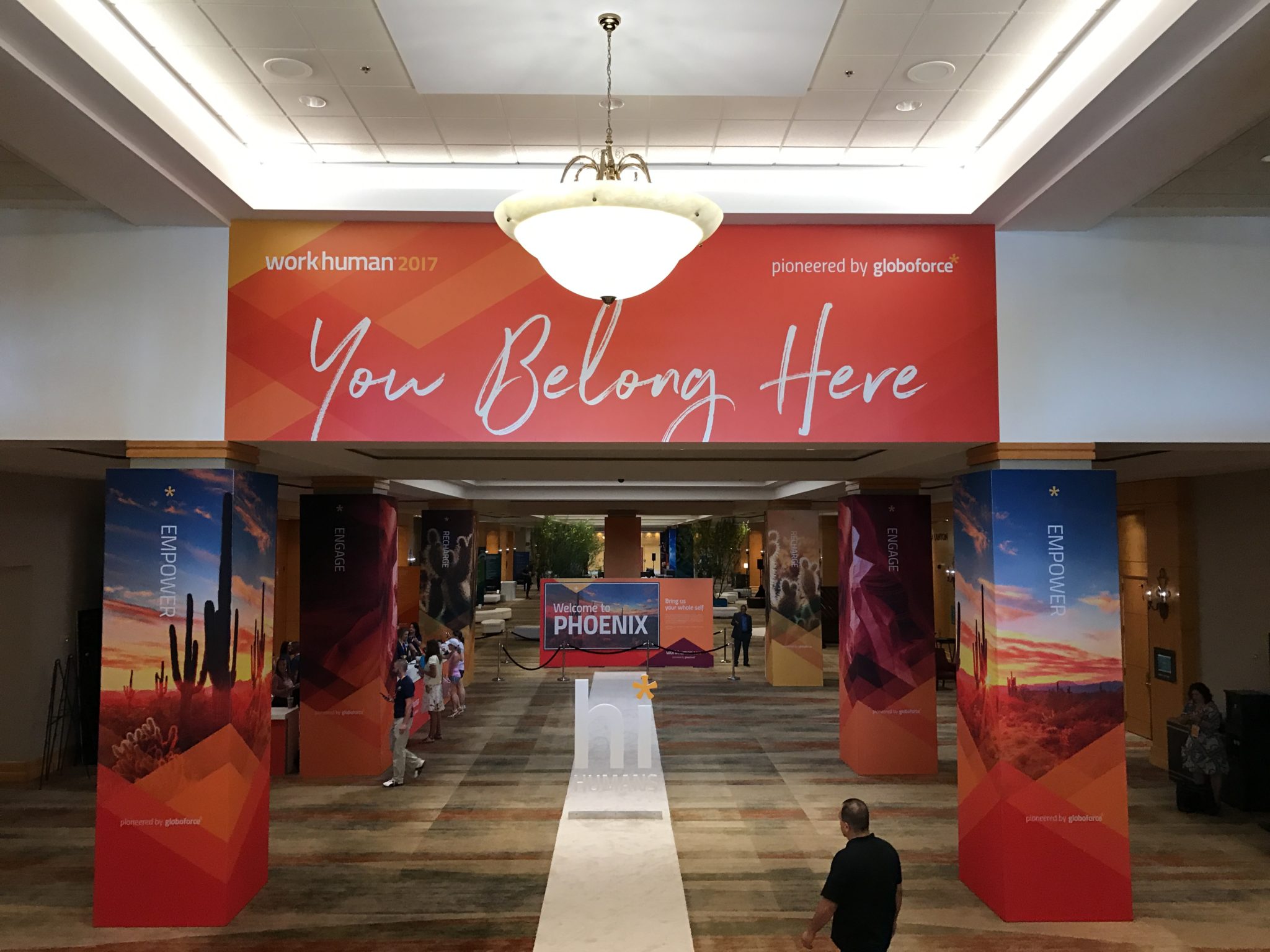The Future of Work Culture
WorkHuman 2017 Day Two
Before employees leave an organization, there is an odd ritual that tends to take place in most organizations: the exit interview. It is then that the soon-to-be-leaving employee is asked for insights. On paper, this follows logic. A learning organization ought want to know what would make it better.
But Adam Grant thinks we should kill them.
“Why do we wait until people are walking out the door to find out what would have kept them?” said Grant, author of Originals: How Nonconformists Move the World Forward.
Like so many of the vestiges of the machinery of human resources, the logic is backwards for today’s workplace. So instead of waiting until the finality of an exit, Grant implored that managers ask for insights when they would be most helpful: during the on-boarding.
“Ask them for their ideas when they join the organization. Because that is when they have all of the energy and fresh thinking,” said Grant.
While only a tactical practice example, this idea of reversing a commonly held convention fit into Grant’s larger point of creating an environment where the nonconformists and visionaries can flourish. He outlined answers to the question: Once new ideas are presented in an organization, how do they gain purchase?
In contrarian fashion, Grant also challenged the audience to “put your worst foot forward” or lead with weakness because it can disarm others. Since any new idea sounds ridiculous, he advises making the unfamiliar familiar — or tie a new idea to a conventional one.
Grant’s analytical take on how cultures embrace (or fail to embrace new ideas) was indicative of the posture of the WorkHuman conference on its second day. After coming out of the gate with boldness, the gathering settled into an introspective rhythm for its second day of experiences. Service, humility and a genuine desire for knowledge were the themes of the day.
Here are some takeaways from Day Two:
Mindfulness is more than deep breathing
 While it is usually cast as a spiritual practice, the role of mindfulness within organizations has been illustrated to improve bottom-line performance. Pandit Dasa, a mindfulness leader and wellbeing expert, outlined the physical benefits to individuals as well as the practical benefits to organizations of sustained mindful practices.
While it is usually cast as a spiritual practice, the role of mindfulness within organizations has been illustrated to improve bottom-line performance. Pandit Dasa, a mindfulness leader and wellbeing expert, outlined the physical benefits to individuals as well as the practical benefits to organizations of sustained mindful practices.
“Mindfulness is not a spiritual exercise,” said Dasa. “It can enhance thinking, repress knee-jerk emotional responses. And it helps people to make changes in a more flexible way.”
Mindfulness, according to Dasa, is also lived out at the interpersonal (and not just interpersonal) level. From his time as a Buddhist monk, Dasa shared the four tenants any form of mindful communication must meet:
- Truthful. It must be reality.
- Beneficial. What you share will be good for the receiver.
- Not disturbing. This requires you to consider the emotional consequences of your communication.
- Pleasing. This requires that you know and understand the values of the person to whom you communicate.
This seems a tall order, for certain, but Dasa stresses that the tenants are goals to which a mindful leader can aspire.
Discomfort is a requirement for human learning
Rahul Varma is passionate about how humans learn. And he should be. As Accenture’s global head of talent and earning, Varma is responsible for onboarding, learning and performance of over 380,000 people. So his session on “Truly Human Performance at Accenture” began in much the way that you would expect – with unexpected uncomfortable exercises.
Varma had attendees to session spread out chairs, practice chair breathing and specific hand movements. He followed that with a writing exercise about personal passion, and a series of interactive activities with fellow attendees. Most of this was aimed at a simple, yet poignant takeaway: Humans learn by doing.
“Humans learn best when they can utilize their whole being. When you walked in, we made physical and mental space. That space allows for focus, which is the essence of high performance,” Varma said. “You then connected and deeply listened to other’s stories. We did this in a gentle way that naturally complimented the person for their passion. These were random people you just met. Imagine what would happen if you made this a practice with the teams you work with each day.”
Rather than leaving the attendees with pages of notes on insights, Varma focused on the simplicity and the core human needs that surround high performance and capability.
“You don’t need new models or pages of notes,” said Varma. “I want you instead to leave here with big dreams and being fully human with what you do.”
The Future is Now
 A great many of the structures that used to hold together human resources practice and design have become antiquated and essentially meaningless in today’s workforce. Josh Bersin, principal and founder, Bersin by Deloitte, Deloitte Consulting LLP, shared a number of his latest insights from his most recent analysis of company cultures. Here are some of the more notable findings and explanations:
A great many of the structures that used to hold together human resources practice and design have become antiquated and essentially meaningless in today’s workforce. Josh Bersin, principal and founder, Bersin by Deloitte, Deloitte Consulting LLP, shared a number of his latest insights from his most recent analysis of company cultures. Here are some of the more notable findings and explanations:
- Job descriptions are meaningless. The concept was created when we knew what jobs were. More than 60 percent of the time, the job that a person does on the first day does not match the job description.
- ‘Employee engagement’ as a concept is dead. The days of the 12-question surveys to judge engagement are over. We must instead apply the disciplines of design thinking to employment. Do more listening, segmentation and visualizations of employee journeys can guide better solutions. This approach accounts for the complexities of the workplace.
- Performance management is broken. In the organization of the future, there cannot be delays in feedback. Also, new indications of followership or other measures of social capital must be built into the ways in which employees are evaluated.
- We are always behind leadership. This is one of the most stagnant areas in human resources and company culture. Leadership books and tools are prolific, but the philosophy of effective leadership is completely different than the published thinking. Missing in most of the thinking are concepts such as personal growth mindset, citizenship and inclusivity – all characteristics of today’s best leaders.
Check out the Day One Review and follow the Be Human Project Twitter for more.


